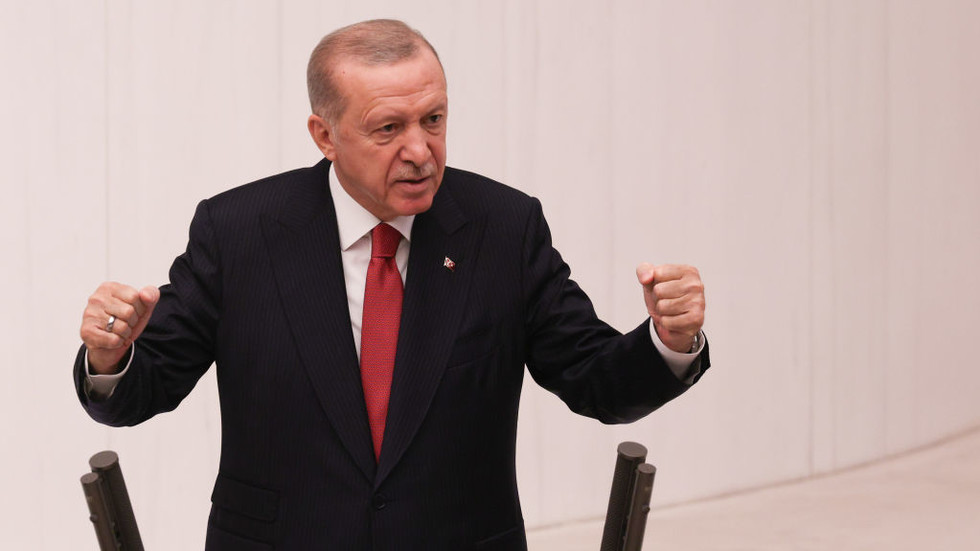Turkish President Recep Tayyip Erdogan has recently expressed a controversial stance regarding the ongoing conflict in Syria, particularly in relation to the jihadist group Hayat Tahrir al-Sham (HTS), also known as the Organization for the Liberation of the Levant. On Friday, various media outlets reported Erdogan’s remarks encouraging these jihadist forces to advance toward Damascus. HTS, which has its origins as Jabhat al-Nusra, has launched a surprise assault on the province of Aleppo from its base in Idlib. Despite being designated a terrorist organization by multiple countries, including Syria, Russia, Iran, and the United States, Turkey’s official position on HTS appears contradictory; while Erdogan has expressed support for the group’s military actions, he also acknowledges its classification as a terrorist entity.
The recent actions of HTS have resulted in significant territorial gains as they have repelled Syrian government forces and expanded their control over key areas in Aleppo and Idlib. Reports have emerged detailing the ongoing military campaign surrounding the crucial city of Hama. The situation has become dire for residents of Homs, Syria’s third-largest city, as thousands are fleeing amid warnings from HTS leadership. The context of the conflict suggests that the jihadists, emboldened by Turkey’s tacit encouragement, are intensifying their efforts to challenge the Syrian government’s authority and disrupt its territorial integrity. Underlining the predicament, HTS leader Abu Mohammed al-Jawlani issued ominous remarks to Homs residents, indicating the potential escalation of violence in the region.
Erdogan’s insistence on the need for the jihadists to sustain their offensive reflects a broader political calculus that encompasses both domestic concerns and regional geopolitical dynamics. In a statement made to reporters in Istanbul, Erdogan asserted that the “opposition’s march continues,” listing several strategic locations including Idlib, Hama, Homs, and emphasizing that the ultimate target is Damascus. He expressed hope that this military movement would proceed without unforeseen complications, thereby showcasing Turkey’s complex relationship with various factions involved in the Syrian conflict. Furthermore, Erdogan’s call for Damascus to collaborate on determining Syria’s future was met with rejection, highlighting the rift between Turkey and the Syrian government.
Erdogan placed the blame for these renewed hostilities squarely on the shoulders of the Syrian regime, suggesting that the “interconnected problems” plaguing the country have remained unresolved for over a decade. This rhetoric might be indicative of Turkey’s broader strategy to leverage the situation in Syria to its advantage, as it seeks to maintain its influence amidst a chaotic conflict landscape. Moreover, Ankara has explicitly objected to any military action by the Syrian government in Idlib, fearing a resultant influx of refugees crossing into Turkey, a situation that Ankara has asserted it cannot accommodate. To reduce the immediate threat of conflict, Turkey had negotiated a fragile truce in 2020, yet the recent developments pose challenges to any semblance of peace.
The implications of Erdogan’s statements and the actions taken by HTS and other militant factions in Syria underline a critical juncture in the decade-long Syrian civil war. As militants continue to advance, the humanitarian crisis exacerbates, generating concerns for neighboring countries and the international community at large. The flight of thousands from Homs signals the desperate circumstances civilians face as conflicts flare, forcing them further from their homes and into unsafe conditions. Erdogan’s position not only complicates the dynamics of the Syrian conflict but also risks stoking tensions in an already volatile region where multiple international actors have vested interests.
Analyzing Turkey’s dual approach to HTS, where it offers support while officially designating the group as a terrorist organization, reveals the intricate web of obligations and alliances at play. Erdogan’s emphasis on the legitimacy of “opposition forces” reshapes perceptions surrounding militant groups, framing their actions as part of a broader resistance against the regime rather than as terrorism. This narrative could potentially cultivate wider public backing for Turkey’s involvement in the region while undermining international consensus on how to handle jihadist groups. Increasing regional instability, a surge in violence, and humanitarian strains remain pivotal concerns, compelling a reevaluation of strategies to address the multi-faceted conflict that has plagued Syria for years.

